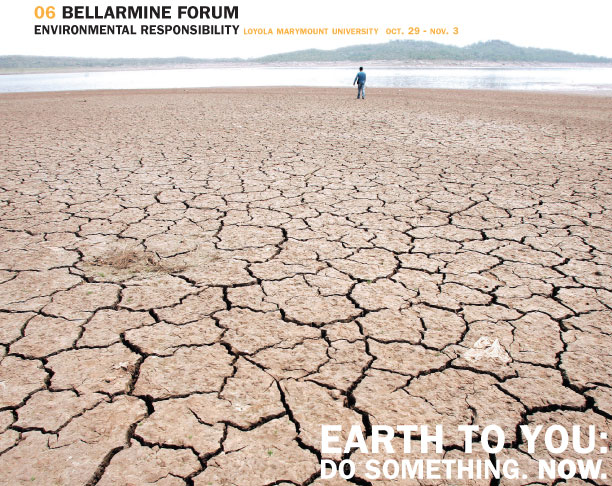Green but NIMBY: Unequal Burdens in L.A. Communities
Event Type
Talk
Location
St. Roberts Auditorium
Start Date
2-11-2006 7:15 PM
End Date
2-11-2006 9:00 PM
Description
“Not In My Backyard” (NIMBY) is a familiar refrain heard by policymakers trying to make a difference. What does it mean to be environmentally responsible without contributing to environmental racism? How is it that the disproportionate share of the burden for environmentally irresponsible acts falls upon marginalized and vulnerable communities? This panel featured individuals intimately familiar with L.A. communities, as well as the broader environmental practices and policies that affect them.
As director of L.A. City’s Department of Environmental Affairs, Detrich Allen is in a unique position to reflect on how our practices in Los Angeles have lived up to the ideal set in 1996. That year, the L.A. City Council committed itself to assuring the fair treatment of people of all races, cultures, incomes and education levels with respect to the development, implementation and enforcement of environmental laws, regulations, and policies.
LAUSD’s director of environmental health and safety, Angelo J. Bellomo, has worked in the environmental health field for more than 25 years. He has managed regulatory programs for site remediation, chemical emergency response and enforcement.
The Southern California director of Communities for a Better Environment, Carlos Porras, uses GIS technology to reveal how toxic site distribution overlays communities of color in L.A.
Jan Perry, current member of the Los Angeles City Council, provides her observations as panel moderator.
Green but NIMBY: Unequal Burdens in L.A. Communities
St. Roberts Auditorium
“Not In My Backyard” (NIMBY) is a familiar refrain heard by policymakers trying to make a difference. What does it mean to be environmentally responsible without contributing to environmental racism? How is it that the disproportionate share of the burden for environmentally irresponsible acts falls upon marginalized and vulnerable communities? This panel featured individuals intimately familiar with L.A. communities, as well as the broader environmental practices and policies that affect them.
As director of L.A. City’s Department of Environmental Affairs, Detrich Allen is in a unique position to reflect on how our practices in Los Angeles have lived up to the ideal set in 1996. That year, the L.A. City Council committed itself to assuring the fair treatment of people of all races, cultures, incomes and education levels with respect to the development, implementation and enforcement of environmental laws, regulations, and policies.
LAUSD’s director of environmental health and safety, Angelo J. Bellomo, has worked in the environmental health field for more than 25 years. He has managed regulatory programs for site remediation, chemical emergency response and enforcement.
The Southern California director of Communities for a Better Environment, Carlos Porras, uses GIS technology to reveal how toxic site distribution overlays communities of color in L.A.
Jan Perry, current member of the Los Angeles City Council, provides her observations as panel moderator.




